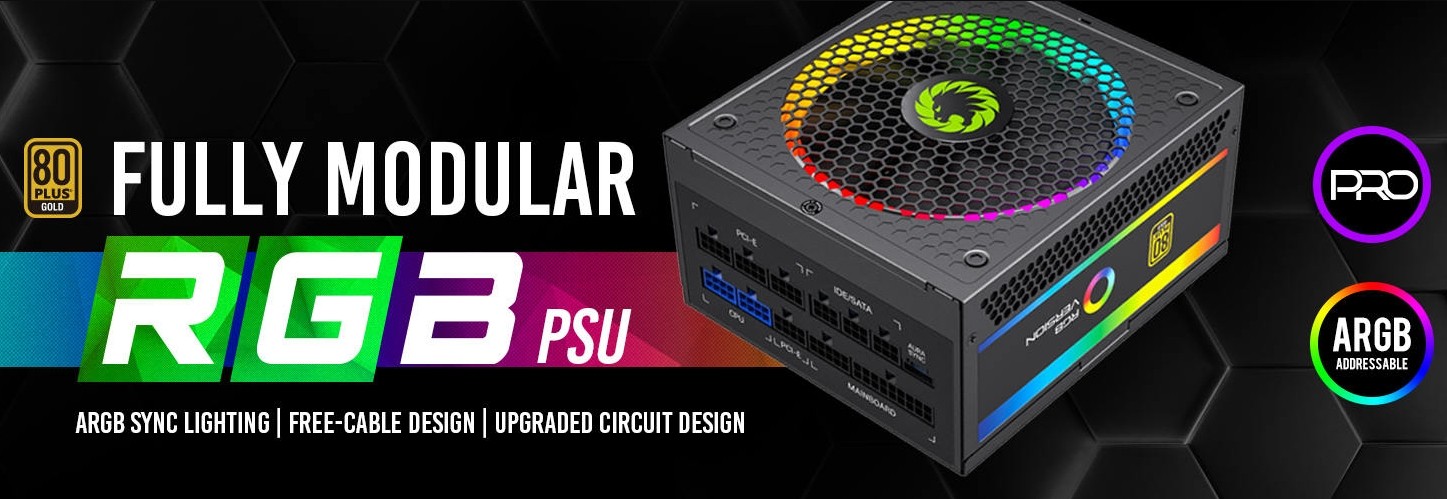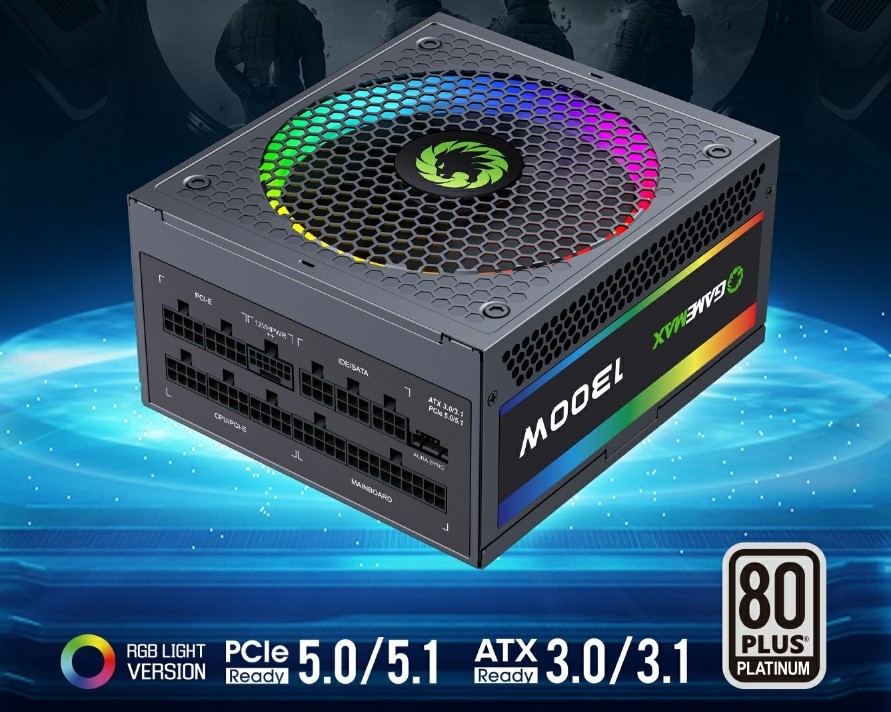Power Supply Units (PSUs) serve as the heartbeat of a computer, powering every single component within its chassis. They are the lifeblood that fuels the CPU, GPU, storage drives, motherboard, and all peripherals attached to the motherboard. As CPUs and GPUs become more and more robust with each iteration, the wattage they demand also scales upwards. Historically, this has translated into a constant increase in PSU wattage, necessitating more robust and efficient PSUs to match the evolving components.
PSUs are available in a range of wattages and ratings, which serve as indicators of their reliability and efficiency. These ratings are crucial in determining the PSU's ability to handle the demands of modern components. We'll delve deeper into this aspect later.

While it's easy to overlook the significance of a PSU, its importance is paramount. A dependable PSU ensures a steady and ample flow of power to all components, enabling graphics cards and processors to operate at their peak performance without the fear of undervolting. Insufficient wattage provided to PC components often leads to a drastic drop in performance or, in worse cases, irreparable damage. Therefore, selecting a PSU that's both powerful and reliable is essential for the smooth and long-lasting operation of your computer system.
Game Rant's Picks for the Best PSUs for Gaming PCs in 2024

GameMax RGB-1300 ATX3.0/3.1 PCIe5.0/5.1 Ready, Fully Modular 80+ Platinum Certified, LLC+DC-DC design for Powerful single +12V rail helps ensure a stable and reliable supply to other PC components. with 140mm ARGB fan helps deliver brighter and stunning light effect and supports synchronization with compatible RGB motherboards from ASUS, GIGABYTE, MSI, and ASRock for countless illumination possibilities.
?ATX3.0 PCI-E 5.0 Ready: It comes with 1x16pin 12VHPWR connector, for support latest GPU Cards.
?80 Plus Platinum Certified: RGB-1300 with 92% efficiency or higher under typical loads. Lower power consumption, less noise, and cooler temperatures.
?RGB Light Mode: 25 smart RGB lighting modes with memory function, press the RGB controller switch to choose the color mode you like single color mode, breathing lights mode, and color mix mode.
?Full Modular: Free-Cable Design, Farewell to messy cables! The daughterboards are directly soldered to the motherboard for better heat dissipation and impressive output power quality.
?Ultra-quiet fan: The 140mm ultra-quiet fan keeps your power supply quiet while maintaining good heat dissipation.
?Output and Protection: Powerful single +12V rails offer stable DC output and support high-end graphic cards and PC systems. Excellent capacitors offer stability, durability, and reliability, OPP/OVP/UVP/SCP/OCP/SIP electrical protection included.

The GIGABYTE GP-UD1000GM PG5 1000W PSU is another stellar choice for gaming enthusiasts, boasting ATX 3.0 compliance and a native 16-pin connector that effortlessly powers the latest RTX 4000 series GPUs. Priced competitively at $150 for a premium PC brand, the UD series PSU from Gigabyte ticks most of the boxes, albeit with a few caveats.
While meeting the ATX 3.0 specifications, the GIGABYTE GP-UD1000GM PG5 doesn't quite exceed expectations. Internal teardowns reveal that despite the extensive 10-year warranty, the PSU's components could be improved, resulting in higher temperatures and a louder operation. This budget-friendly PSU may suffice for most users, but power enthusiasts may find themselves seeking alternative options.
As the GIGABYTE GP-UD1000GM PSU approaches a sub-$120 price tag at various retailers, it becomes an even more budget-oriented choice compared to its direct competitors. Its ability to handle even the RTX 4090 with ease, coupled with a native 16-pin power connector, makes it a compelling option for those seeking a high-end PC. Moreover, the savings on the PSU can be redirected towards other crucial components of the build.

Those seeking a PSU on a tight budget will appreciate the MSI MAG A850GL, which strikes a perfect balance between features and cost. Despite its budget-conscious pricing, it offers gamers all the essentials, including an 80 Plus Gold rating, ATX 3.0 compatibility, PCIe 5.0 support, and a robust 850W of power. Its compact design and fully modular nature add to its appeal.
The MSI MAG A850GL handles power fluctuations from both the CPU and GPU with ease, owing to its reliable and stable performance. This is further validated by its Cybenetics Gold certification and gold rating. Under heavy loads, the 120mm fan keeps the PSU cool without generating excessive noise, thanks to intelligent tuning and, crucially, the fluid dynamic bearing.
While 850W may appear modest when compared to other offerings, it's ample for even an RTX 4090. Most RTX 4090s function smoothly with an 850W PSU at stock settings. Overclocking the CPU and GPU may push the limits, but even then, 850W should suffice unless both components are operating at peak capacity.

Selecting the best PSU for a gaming PC is crucial for ensuring reliability and protecting all components from potential damage. A quality PSU should meet or exceed the user's requirements, be cost-effective, and operate quietly.
The PSU is the backbone of any PC build, distributing power to various components. It converts power from the wall outlet to the specific needs of the CPU, GPU, storage drives, and other components. Depending on the build and the power needs of these components, a PC might require over 1000W in some scenarios. Online tools can help users estimate the power requirements of their build, guiding them in choosing the right PSU. Most gaming PCs can run efficiently on a PSU rated below 1000W, which is considered in the following recommendations.
Power supplies are rated for efficiency and reliability. These ratings include 80 Plus Standard (or 80 Plus White), 80 Plus Bronze, 80 Plus Silver, 80 Plus Gold, 80 Plus Platinum, and 80 Plus Titanium. An 80 Plus Standard PSU offers at least 82% efficiency at 20% load, 85% at 50% load, and 82% at 100% load. In contrast, an 80 Plus Titanium PSU provides a minimum of 94% efficiency at 20% load, 96% at 50% load, and 94% at 100% load.
PSUs are available in various form factors, such as ATX, TFX, SFX, and SFX-L. Full-tower and mid-tower ATX cases can usually accommodate most PSU sizes. However, small form factor builds require an SFX or SFX-L PSU. Despite their smaller size, SFX and SFX-L PSUs can still deliver 1000W or more.
Modular PSUs allow users to connect only the necessary cables, reducing clutter and simplifying cable management. Fully modular PSUs offer the most flexibility, while some PSUs have essential cables permanently attached. Although modular PSUs tend to be more expensive than non-modular or semi-modular ones, they are generally easier to work with.
By considering these factors—wattage, efficiency rating, form factor, and modularity—gamers can find the right PSU that ensures their gaming PC operates smoothly and reliably.
Q: What power supply capacity is needed to run an RTX 4080?
A: The RTX 4080 Founders Edition necessitates a minimum of a 750W PSU. However, it's advisable to opt for an 850W PSU, or even a 1000W unit, to accommodate future upgrades and ensure ample power supply. Nevertheless, a high-quality 750W PSU should suffice for running an RTX 4080 without issues.
Q: What power supply is recommended for an RTX 4090?
A: Nvidia recommends a minimum of 850W for the RTX 4090 GPU. Some manufacturers, especially those with factory-overclocked versions, suggest a 1000W PSU. To be on the safe side and to allow for potential power fluctuations, choosing a 1000W PSU is a prudent decision.
Q: What is the recommended PSU to run an RTX 4070TI?
A: While Nvidia rates the RTX 4070TI at a Total Graphics Power of 285W, recommending a 700W PSU, it's beneficial to consider a slightly higher capacity. Opting for a 750W or 850W PSU can enhance efficiency and provide a buffer for future upgrades, ensuring stable performance and longevity of the system.